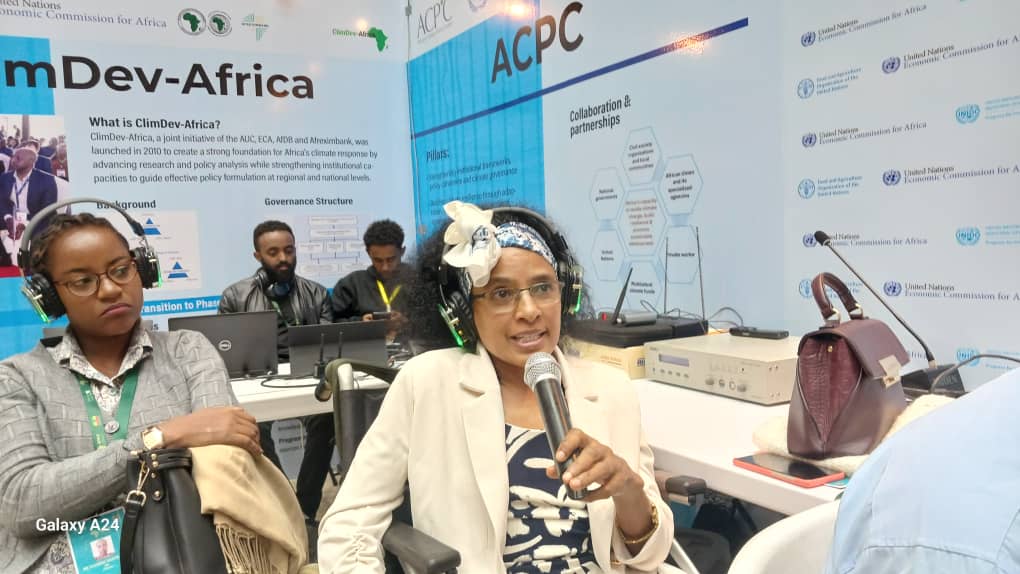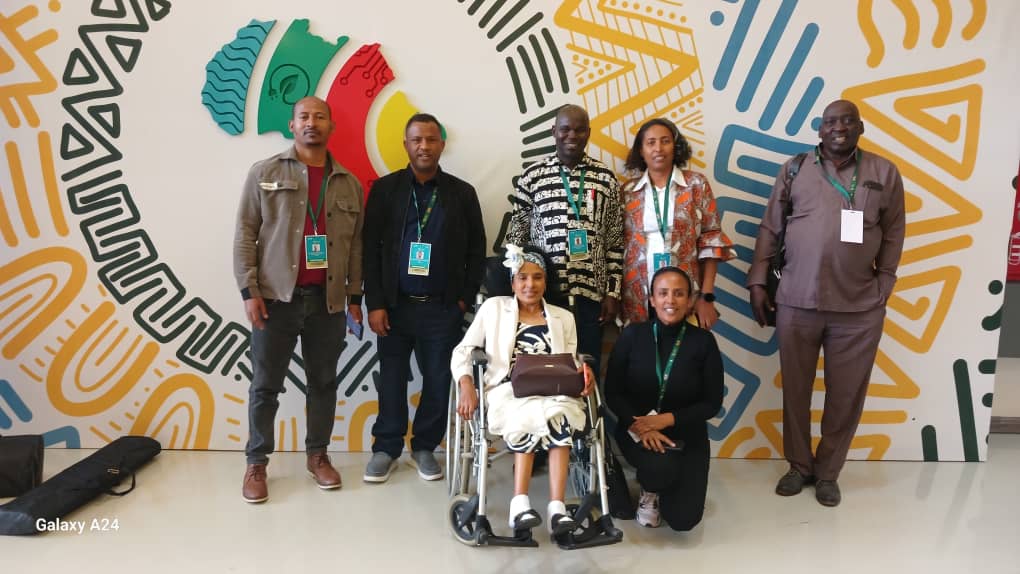How Africa has been dealing with climate change and food insecurity crises has gained global attention, especially regarding persons with disabilities, who remain among the most marginalised. These twin threats are worsened by exclusion from decision-making, weak institutional support, and lack of targeted resources. As Africa charts its climate future through platforms such as the Africa Climate Summit, inclusive governance and food security for all are urgent. The We are Able! (WaA!) programme offers one model where persons with disabilities help shape that future. EU-CORD’s commitment to global justice further demands action to ensure no one is left behind.

during the Africa Climate Summit 2 in Addis Ababa, Ethiopia
The Africa Climate Summit: Commitment and Gaps
The 2023 Africa Climate Summit in Nairobi produced the Nairobi Declaration on Climate Change and Call to Action. African leaders pledged to boost agricultural yield sustainably, advance green growth and push for climate finance that supports both adaptation and mitigation.
While the Declaration mentions inclusive economies and green industrialisation, there is a risk that, without deliberate provisions, persons with disabilities will remain excluded — a reality repeatedly documented in governance processes.
WaA!: Bridging the Gap in Inclusive Food Security and Governance
WaA! is a five-year programme (2021–2025), funded by the Dutch Ministry of Foreign Affairs, active in Burundi, DR Congo, Ethiopia, South Sudan, Sudan, and Uganda. It seeks to ensure persons with disabilities, especially those who are food insecure, are empowered, resilient and able to influence laws, policies, practices and norms for improved food security.
Through a consortium of partners — African Disability Forum, VNG International, The Leprosy Mission, The Hague Academy, and SeeYou Foundation — WaA! supports persons with disabilities to secure a sustainable place in their communities.
The programme operates at individual, organisational and institutional levels, linking local government with national authorities and associations of local government to promote supportive frameworks. It also promotes inclusive governance through the UN Convention on the Rights of Persons with Disabilities (UNCRPD) and the Local Inclusion Agenda (LIA), a tool for municipalities to adopt structures that make public services, food programmes, agricultural support, and disaster risk reduction accessible.
Capacity building targets both persons with disabilities and public authorities, ensuring recognition in planning, budgeting and implementation. Since 2022, governments in WaA! countries have begun integrating food security and disability inclusion into programme planning and budgeting. OPDs have also developed sustainability plans to continue beyond WaA!.
However, persistent challenges remain. Persons with disabilities are often excluded from agricultural services, cash or food distribution, and climate adaptation planning. Barriers include lack of disability-disaggregated data, prejudices, inaccessible infrastructure, and fragility due to conflict. WaA! addresses these by supporting OPDs to bring disability voices into dialogues at national fora, ministries and local budgeting processes.
Linking Inclusive Governance, Food Security and the Summit’s Promise
The Africa Climate Summit commitments will only be realised if inclusive governance is central. Several themes emerge:
Food Security as Climate Justice
Sustainable agriculture and resilient systems mean little if persons with disabilities cannot access land, seeds, extension services, markets and water. Food security is about equitable access, nutrition and agency, not just production.
Governance Structures Matter
Food security and adaptation largely happen locally. If persons with disabilities are excluded at municipal level, national and international commitments may never reach them. WaA!’s LIA model shows that both formal inclusion (committees, budgeting, accessible services) and informal change (awareness, acceptance) are required.
Finance, Policy and Norms Must be Disability-Responsive
Climate finance in Africa must explicitly include persons with disabilities — through earmarked funds, accessible applications and inclusive monitoring. While the Nairobi Declaration calls for more finance, without disability-aware design, much will bypass the most marginalised.
Monitoring, Accountability and Data
Policies matter only if implemented. This requires disability-disaggregated data, monitoring mechanisms and accountability structures enabling persons with disabilities to oversee delivery.

Recommendations and Steps Forward
Drawing from WaA! and EU-CORD’s principles, key actions for meaningful inclusion are:
- Embed Disability in Climate Plans: National adaptation and mitigation strategies must address persons with disabilities’ needs and roles, e.g., in risk mapping, early warning and agricultural support.
- Strengthen Local Governance Capacity: Train authorities to engage OPDs and make planning/budgeting disability inclusive.
- Ensure Accessible Food Security Programmes: Adjust design of seed distribution, irrigation, livestock and markets so persons with disabilities can participate fully.
- Mobilise Disability-Inclusive Climate Finance: Domestically and internationally earmark resources for disability inclusion in resilience and food security.
- Promote Participation and Representation: Ensure persons with disabilities are represented in governance bodies, climate dialogues and community decisions.
- Improve Data and Accountability: Collect disaggregated data, monitor inclusion, and hold institutions accountable.
The challenges of climate change and food insecurity demand justice-centred responses. For the six WaA! countries, progress lies not only in technologies or large-scale finance, but in inclusive governance: policies, laws and institutions that recognise persons with disabilities as rights-holders, decision-makers and partners. The Africa Climate Summit offers broad commitments; WaA! demonstrates that inclusion is possible, effective and transformative. EU-CORD’s ethical foundation compels us to ensure Africa’s climate future leaves no one behind — especially those long silenced.
Read about Africa Climate Summit 2 here: Africa Climate Summit 2: Advancing inclusive climate action – We are able